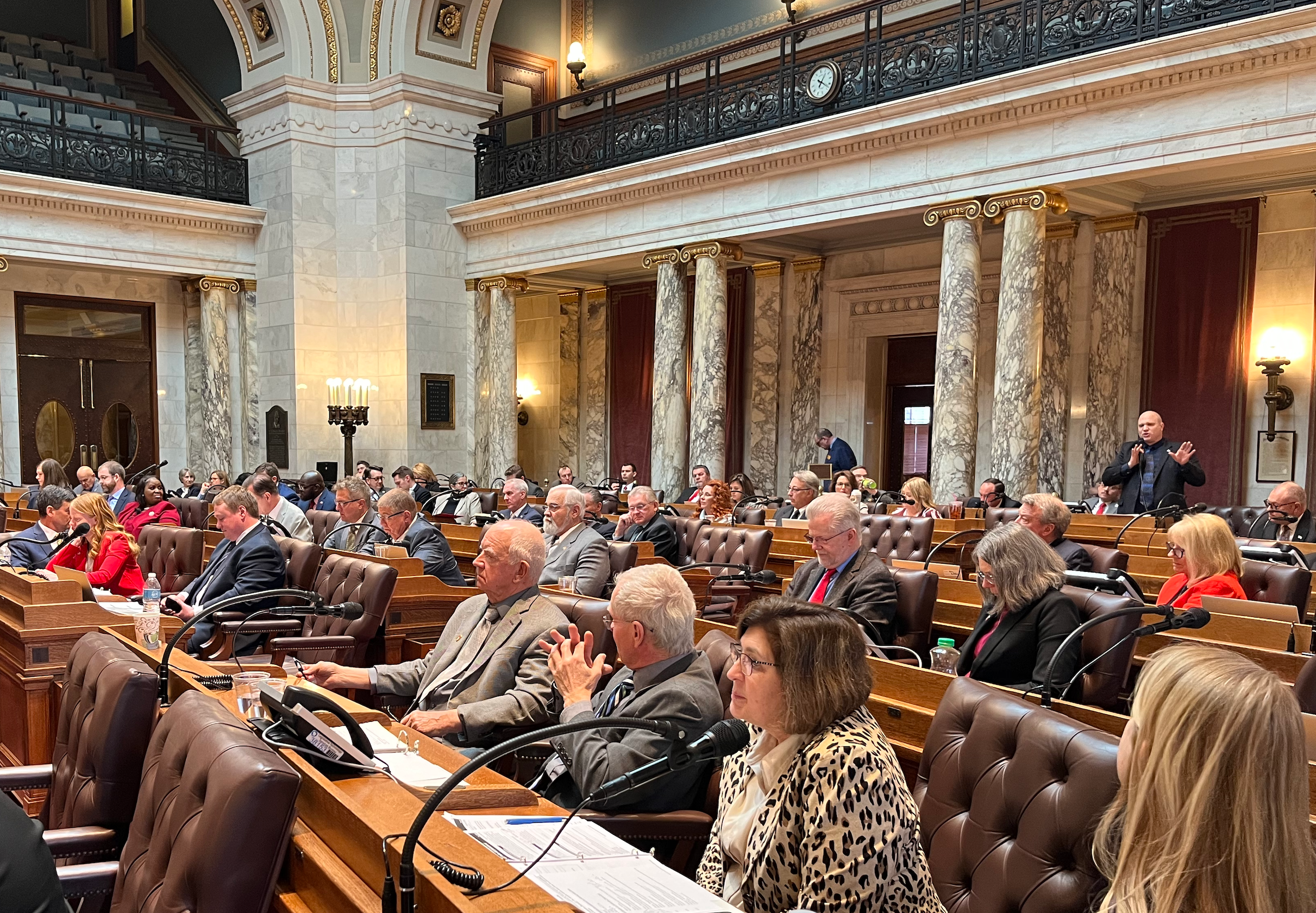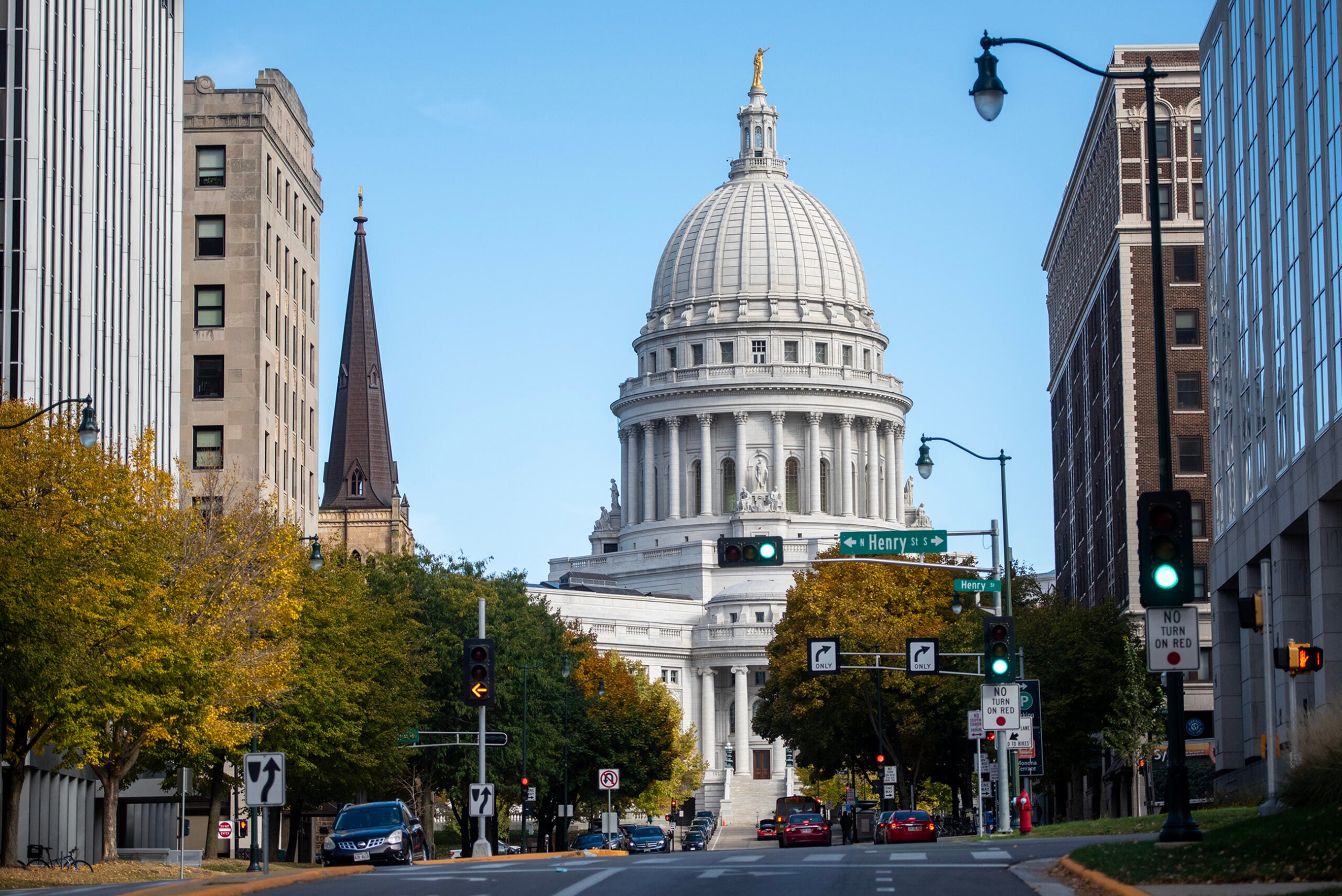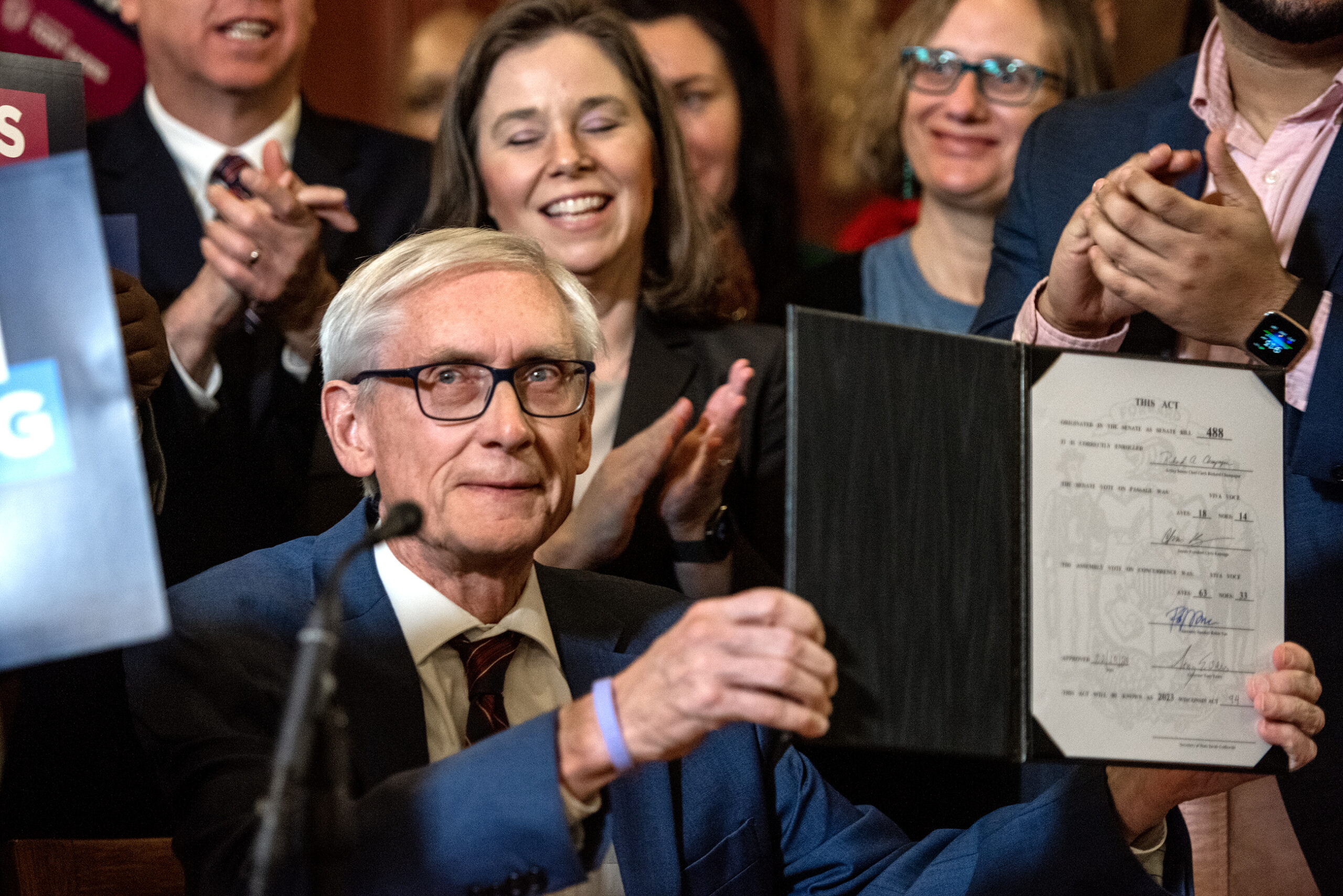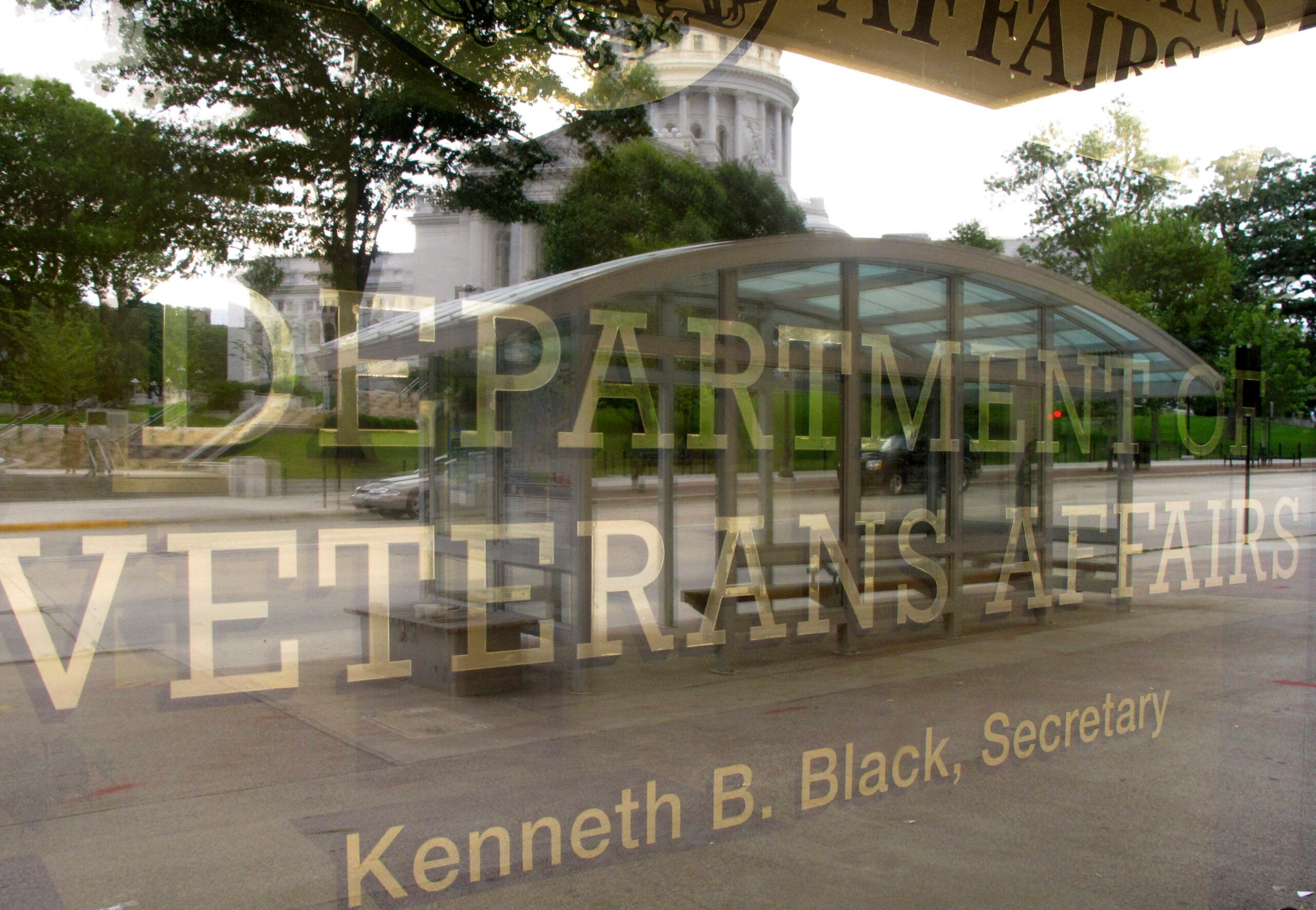Reckless drivers could face higher fines and prison time under a measure that passed the state Assembly Wednesday with broad bipartisan support.
The full Legislature also passed another bill that would let police seize and impound the vehicles of repeat reckless drivers.
They were among several “tough on crime” bills advanced by GOP leaders Wednesday. Others included tougher penalties for carjackers and people who make or sell drugs that lead to a fatal overdose.
News with a little more humanity
WPR’s “Wisconsin Today” newsletter keeps you connected to the state you love without feeling overwhelmed. No paywall. No agenda. No corporate filter.
Republicans also blocked a rule that would have banned conversion therapy in Wisconsin and passed a resolution urging Gov. Tony Evers to call a special election for Wisconsin Secretary of State.
Here’s a roundup of Wednesday’s session.
Reckless driving
Penalties for people convicted of reckless driving would increase several fold under the bill that passed the Assembly Wednesday on an 85-12 vote.
The measure’s sponsor, Rep. Bob Donovan, R-Greenfield, said it was aimed at a fast-growing problem in Wisconsin, where the Department of Transportation says 2,900 people were injured by reckless drivers last year, and more than 100 people killed.
“This is a serious problem,” Donovan said. “This bill sends a message to criminals that this behavior will no longer be tolerated, and you will indeed be punished for endangering the lives of potentially thousands of people.”
Under the proposal, the penalty for a first reckless driving offense would go from $25 to $200 while a second offense would go from a $50 fine to $500. Fines for subsequent offenses would go from $100 to $1,000. Repeat offenders could also be sentenced to jail time.
If reckless drivers cause “great bodily harm” to someone, their maximum prison sentence could be six years, up from three-and-a-half years right now.
The other reckless driving bill would let a city, village, town or county pass an ordinance to impound vehicles if someone is a repeat reckless driving offender and has not paid a previous fine. That measure, which passed the Senate 30-1 and passed the Assembly 85-12, now heads to the governor’s desk.
Evers has said he will likely sign both bills, calling them “a step forward” in addressing the problem of reckless driving.
‘Tough on crime’ bills target carjacking, drug dealers
The reckless driving bills were among several “tough on crime” plans taken up by lawmakers, though others weren’t quite so popular.
Under one, people could serve up to 60 years in prison if they’re convicted of carjacking, up from a maximum penalty of 40 years now.
“This defines the crime of carjacking,” said Sen. Van Wanggaard, R-Racine. “So it’s very clear. If you do the crime, you’re gonna do the time.”
Under another, people who cause someone else’s death when they manufacture or sell drugs like fentanyl could also face up to 60 years in prison, up from 40 years right now.
Sen. Chris Larson, D-Milwaukee, called it a feel-good bill that doesn’t address the root causes of drug addiction.
“This is going to leave us with the false impression that we did something. We solved it. We were tough on crime,” Larson said. “It solves nothing.”
But the measure passed on a bipartisan 28-3 vote. Sen. La Tonya Johnson, D-Milwaukee, said her brother died from a drug overdose, telling senators that drug dealers who mix their product with fentanyl have “no regard for life.”
“And if this bill could take one of those individuals off the street, it is worth its weight in gold,” Johnson said.
In the Assembly, Republicans passed another bill that would increase the mandatory minimum sentence to five years for people convicted of felonies who posses firearms. State law already bars a person convicted of a felony from owning a gun, but right now, five years in prison is the maximum penalty. No minimum sentence currently exists.
Republicans vote to continue allowing conversion therapy
In the Senate, Republicans used a procedural maneuver to again block rules banning conversion therapy, which seeks to change the sexual orientation, gender identity or gender expression of those in the LGBTQ+ community. Republicans in the state Assembly took a similar vote earlier this month.
A state licensing board — called the Marriage and Family Therapy, Professional Counseling, and Social Work Examining Board — adopted rules to ban the practice in 2020. But Republicans on the Joint Committee for Review of Administrative Rules voted to block the ban from taking effect.
Democrats called the move by Republicans harmful and hateful, saying it would disrupt the lives of kids who identify as LGBTQ+ and contribute to feelings of isolation and loneliness.
“Today, I am embarrassed to be a member of the state Senate, and I don’t say that often,” said Sen. Tim Carpenter, D-Milwaukee, who is gay. “We shouldn’t play games with peoples’ civil rights.”
Republicans did not speak during debate, but in a written statement issued later, Sen. Duey Stroebel, R-Cedarburg, defended the vote.
“Issues of sex, sexual preference and gender identity generate a wide divergence of strongly held beliefs,” read the statement from Stroebel. “If the State were going to consider such a prohibition on discussing or advocating certain theories, the law requires it must be done through the elected branches of government and not some unaccountable members of an activist licensing board.”
Republicans blocked the conversion therapy ban using a procedural sleight of hand. They sent a bill that would permanently overturn the rule back to committee, letting them sidestep a governor’s veto.
Republicans used a similar approach to block a Wisconsin Elections Commission rule providing guidance to local clerks on filling in missing information on a witness certificate for an absentee ballot. That vote effectively upholds a ban on the practice in effect since last year.
Republicans chastise Evers over Secretary of State pick
Days after Evers appointed former Treasurer Sarah Godlewski to fill a sudden vacancy in the Secretary of State’s office, Republicans in both the Senate and Assembly passed a resolution urging the governor to call a special election for the seat.
The appointment was Evers’ to make under state law, and the resolution urging him to reconsider his decision amounts to advice from lawmakers. They can’t force the governor’s hand.
But the law does allow for governors to call special elections for constitutional offices left vacant early in someone’s term. That was the case last week, albeit briefly, when longtime Secretary of State Doug La Follette announced months after he was reelected that he was resigning.
“Let the people speak. Let democracy work out its process. And let’s have a duly elected Secretary of State,” Senate Majority Leader Devin Le Mahieu, R-Oostburg, said.
Asked about the appointment at a press conference the day before the Legislature’s vote, Evers rejected suggestions from some Republicans that Democrats had colluded on the Godlewski appointment.
“There was no collusion,” Evers said Tuesday. “La Follette brought my office a letter saying, ‘I’m sick of this stuff.’ He left. I appointed a completely competent person to do the work. That’s the end of that story.”
Godlewski, who was elected state treasurer in 2018 but lost a Democratic primary for U.S. Senate last year, is scheduled to serve as Wisconsin Secretary of State until January 2027.
Lawmakers passed several other bills Wednesday.
- One would clarify the definition of “violent crimes” should voters pass a proposed constitutional amendment expanding what judges can consider when they set cash bail. A spokesperson for Evers didn’t say whether the governor would sign it.
- Another would make it a felony to participate or encourage a riot, a plan supporters have tied to the destructive demonstrations of 2020. Evers vetoed a similar plan last session.
- Senators also passed a Black History Month resolution, which has been controversial in recent sessions. Still, the vote came more than three weeks after Black History Month ended.
- Senators also confirmed three Evers cabinet appointees, two of them for the first time. Insurance Commissioner Nathan Houdek and Tourism Secretary Anne Sayers received unanimous confirmation votes from senators. So did Wisconsin Economic Development Corp. Secretary and CEO Missy Hughes, who was also confirmed unanimously last session.
Wisconsin Public Radio, © Copyright 2025, Board of Regents of the University of Wisconsin System and Wisconsin Educational Communications Board.







